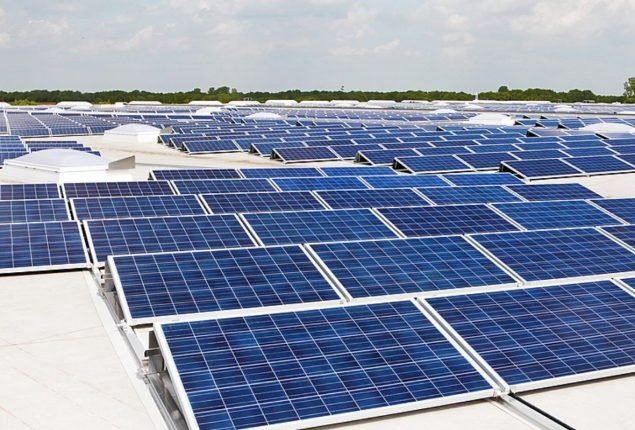The decline in solar panels price reflect a broader trend of increasing adoption of solar power systems in Pakistan.

The price of solar panels in Pakistan has experienced a substantial decline, creating an enticing opportunity for individuals eager to embrace solar energy and break free from the challenges posed by escalating power tariffs and the persistent threat of extended power outages.
The remarkable drop in solar panel prices extends across all grades of solar plates, presenting a timely and cost-effective solution for consumers seeking sustainable alternatives amidst the current energy landscape.
This favorable price correction can be attributed to the recent strengthening of the local currency against the US dollar, fostering a conducive market environment for solar enthusiasts and potential adopters of renewable energy solutions.
Among the notable changes, the 160W solar panel has seen a considerable reduction in cost, now ranging from Rs11,000 to Rs11,500, a significant decrease from its previous rate of Rs15,000. This adjustment is poised to make solar energy more accessible to a wider audience.
The reduction in solar panel prices has triggered a notable surge in sales, especially for larger solar plates. Consumers can now explore and acquire solar panels within the range of Rs35,000 to Rs45,000, a substantial drop from the previous inflated prices that often approached Rs70,000. This price transformation is expected to empower a broader segment of the population to embrace and integrate renewable energy solutions into their daily lives.
The decline in solar panels price reflect a broader trend of increasing adoption of solar power systems in Pakistan. Solar energy, with its minimal greenhouse gas emissions and lower operational and maintenance costs compared to traditional energy sources, is rapidly emerging as a viable and sustainable choice for both residential and commercial consumers.
This shift towards solar power also plays a pivotal role in reducing the country’s reliance on imported fossil fuels, aligning with global initiatives to combat climate change and curtail carbon footprints associated with electricity production. The newfound affordability of solar panels positions renewable energy as an accessible and practical option for a diverse range of consumers, further contributing to the nation’s transition towards cleaner and more sustainable energy solutions.
As the demand for solar energy continues to rise in Pakistan, spurred by both economic and environmental considerations, the government and private sector are expected to play integral roles in fostering a conducive environment for the growth of the renewable energy sector. The decline in solar panel prices marks a significant milestone in this journey, paving the way for a brighter and more sustainable future powered by the sun.